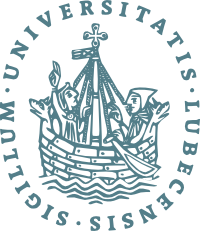Runtime Verification For Timed Event Streams With Partial Information
| Title | Runtime Verification For Timed Event Streams With Partial Information |
| Publication Type | Conference Paper |
| Year of Publication | 2019 |
| Authors | Leucker, M, Sánchez, C, Scheffel, T, Schmitz, M, Thoma, D |
| Conference Name | Runtime Verification (RV) |
| Publisher | Springer |
| Conference Location | Portugal |
| Abstract | Runtime Verification (RV) studies how to analyze execution |
@inproceedings {1319,
title = {Runtime Verification For Timed Event Streams With Partial Information},
booktitle = {Runtime Verification (RV)},
year = {2019},
publisher = {Springer},
organization = {Springer},
address = {Portugal},
abstract = {<p>Runtime Verification (RV) studies how to analyze execution<br>
traces of a system under observation. Stream Runtime Verification (SRV)<br>
applies stream transformations to obtain information from observed<br>
traces. Incomplete traces with information missing in gaps pose a common<br>
challenge when applying RV and SRV techniques to real-world systems<br>
as RV approaches typically require the complete trace without missing<br>
parts. This paper presents a solution to perform SRV on incomplete<br>
traces based on abstraction. We use TeSSLa as specification language<br>
for non-synchronized timed event streams and define abstract event<br>
streams representing the set of all possible traces that could have occurred<br>
during gaps in the input trace. We show how to translate a TeSSLa<br>
specification to its abstract counterpart that can propagate gaps through<br>
the transformation of the input streams and thus generate sound outputs<br>
even if the input streams contain gaps and events with imprecise values.<br>
The solution has been implemented as a set of macros for the original<br>
TeSSLa and an empirical evaluation shows the feasibility of the approach.</p>
},
author = {Martin Leucker and C{\'e}sar S{\'a}nchez and Torben Scheffel and Malte Schmitz and Daniel Thoma}
}- News
- Research
- Teaching
- Staff
- Martin Leucker
- Diedrich Wolter
- Ulrike Schräger-Ahrens
- Mahmoud Abdelrehim
- Aliyu Ali
- Christopher Walther
- Phillip Bende
- Moritz Bayerkuhnlein
- Marc Bätje
- Tobias Braun
- Gerhard Buntrock
- Raik Dankworth
- Anja Grotrian
- Raik Hipler
- Elaheh Hosseinkhani
- Frauke Kerlin
- Karam Kharraz
- Mohammad Khodaygani
- Ludwig Pechmann
- Waqas Rehan
- Martin Sachenbacher
- Andreas Schuldei
- Mahdi Pourghasem
- Manuel Herbst
- Inger Struve
- Annette Stümpel
- Gesina Schwalbe
- Tobias Schwartz
- Daniel Thoma
- Sparsh Tiwari
- Lars Vosteen
- Open Positions
- Contact

